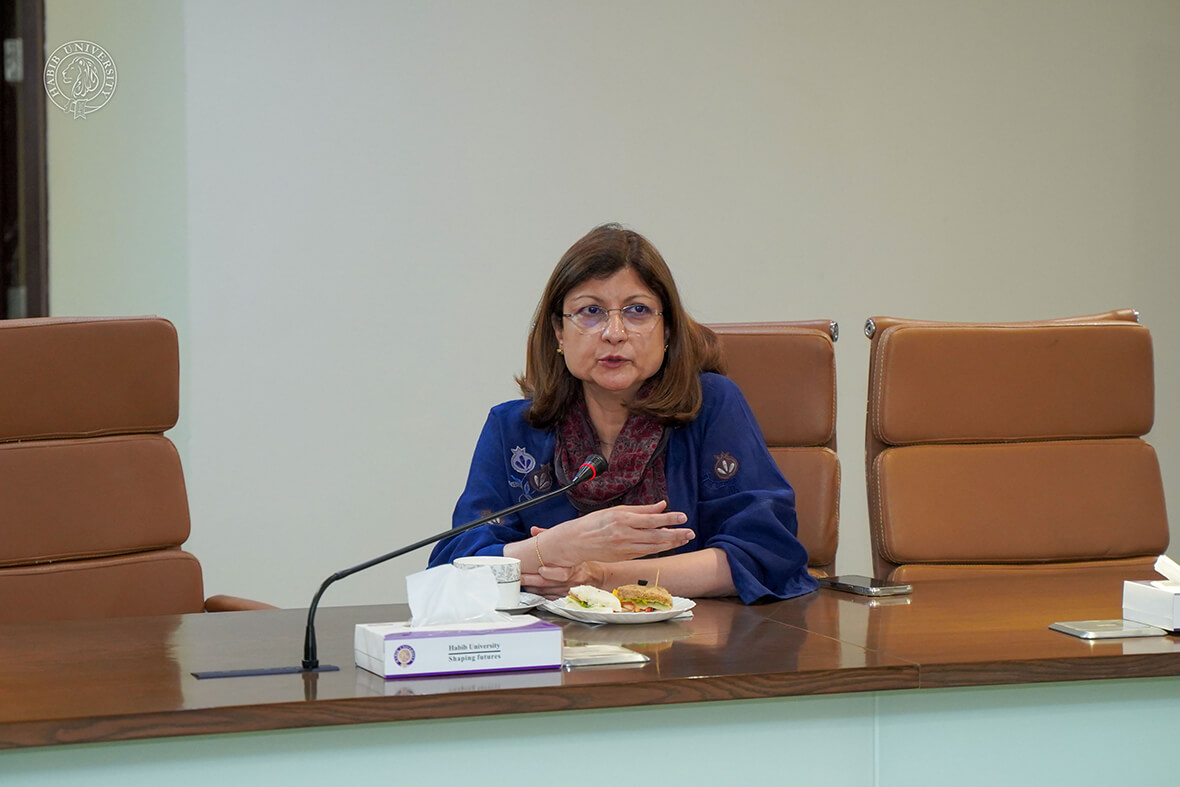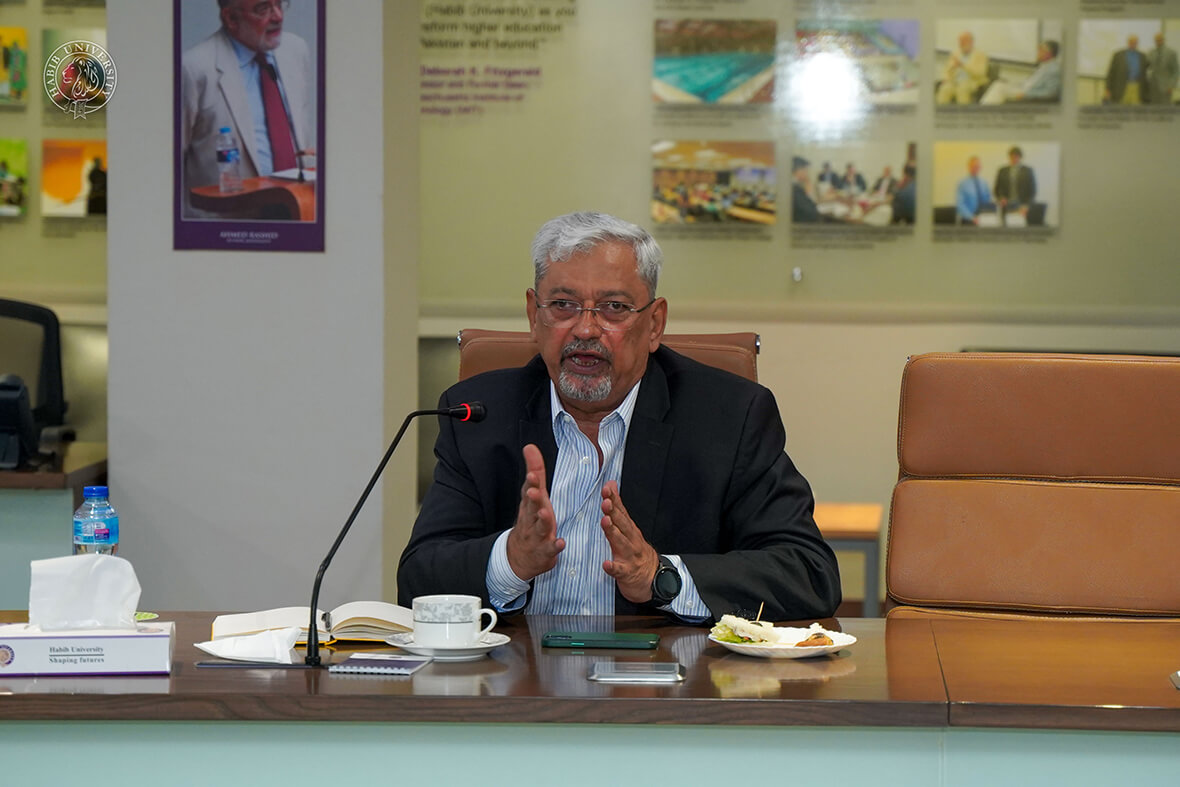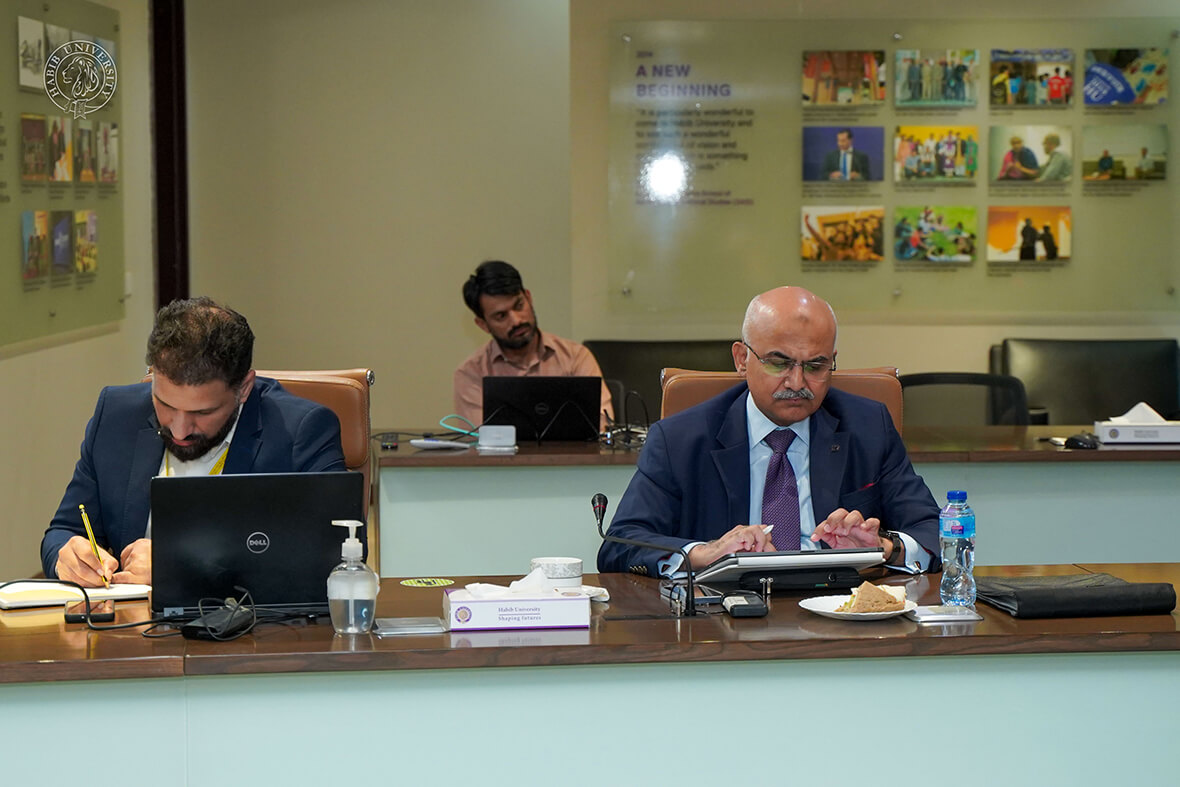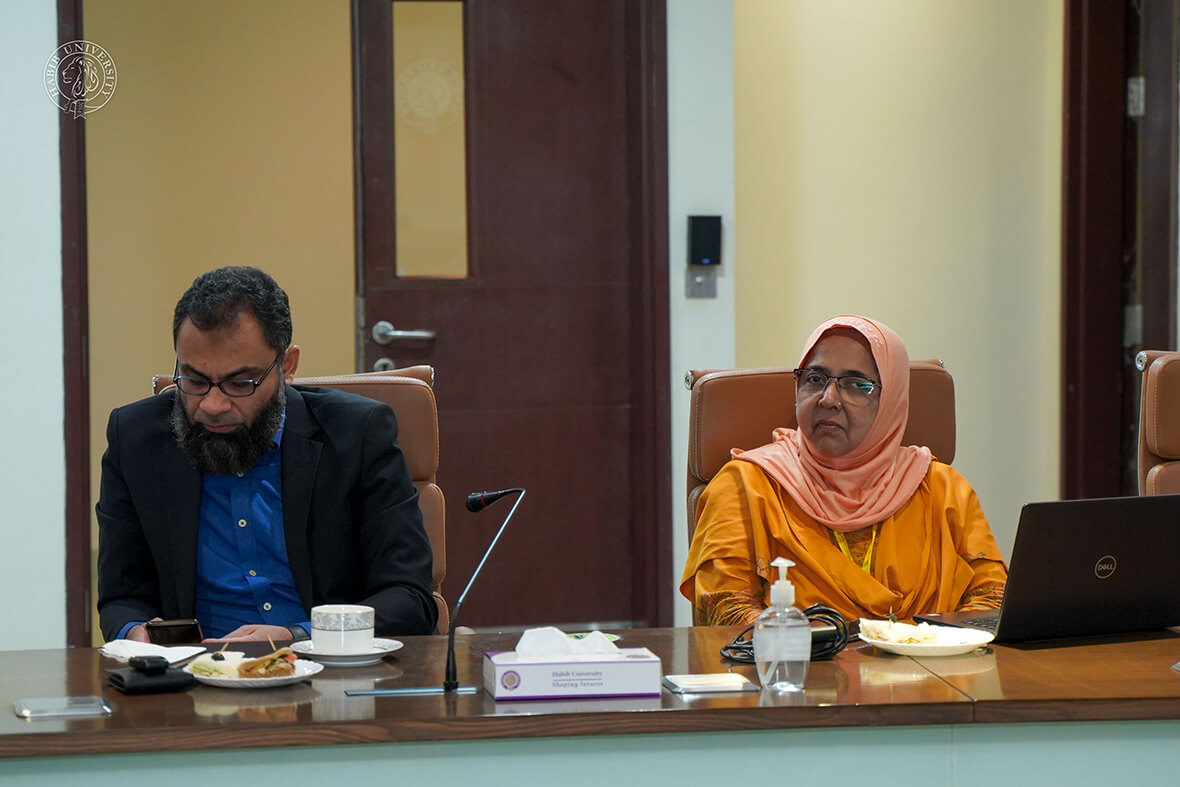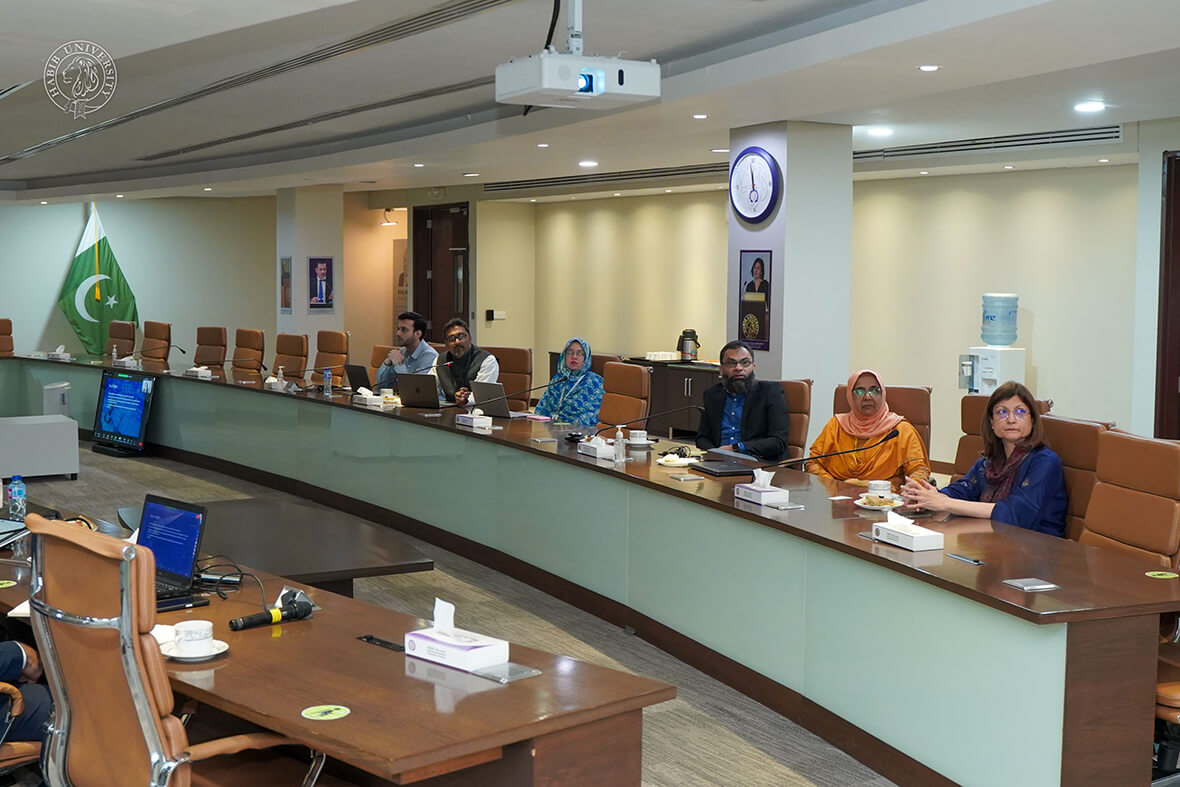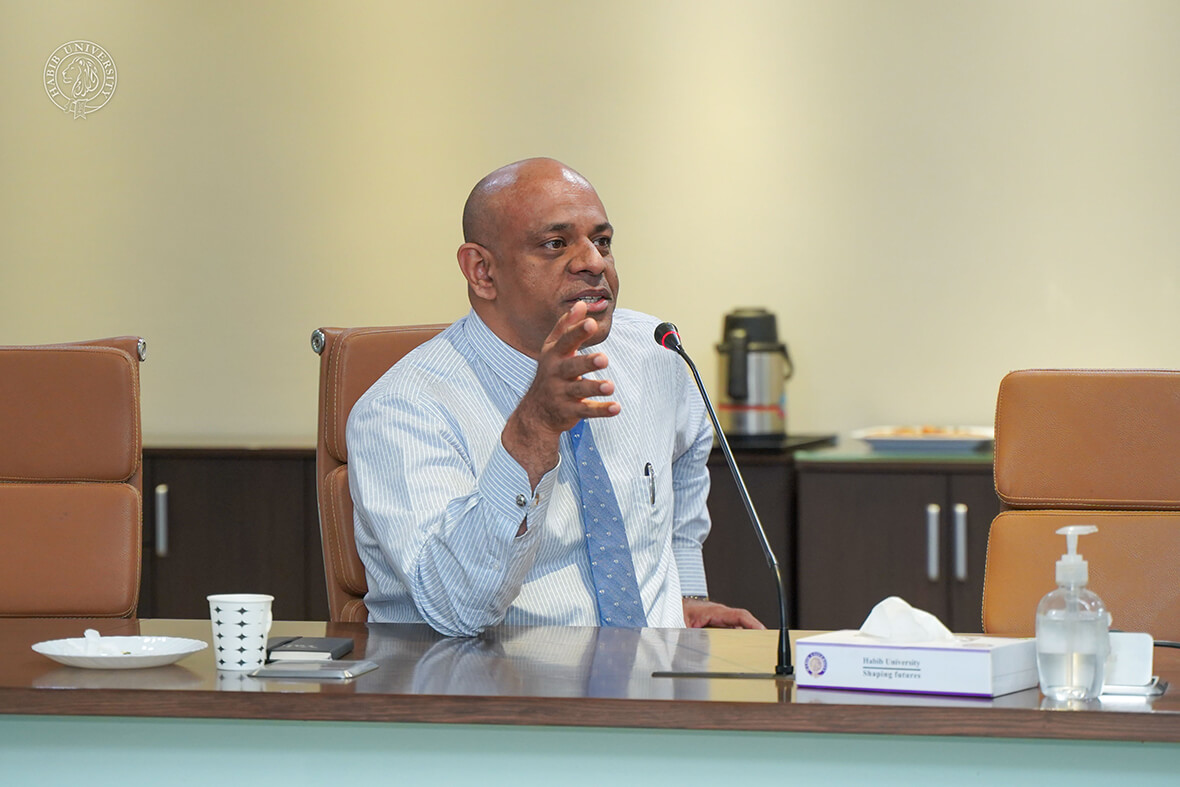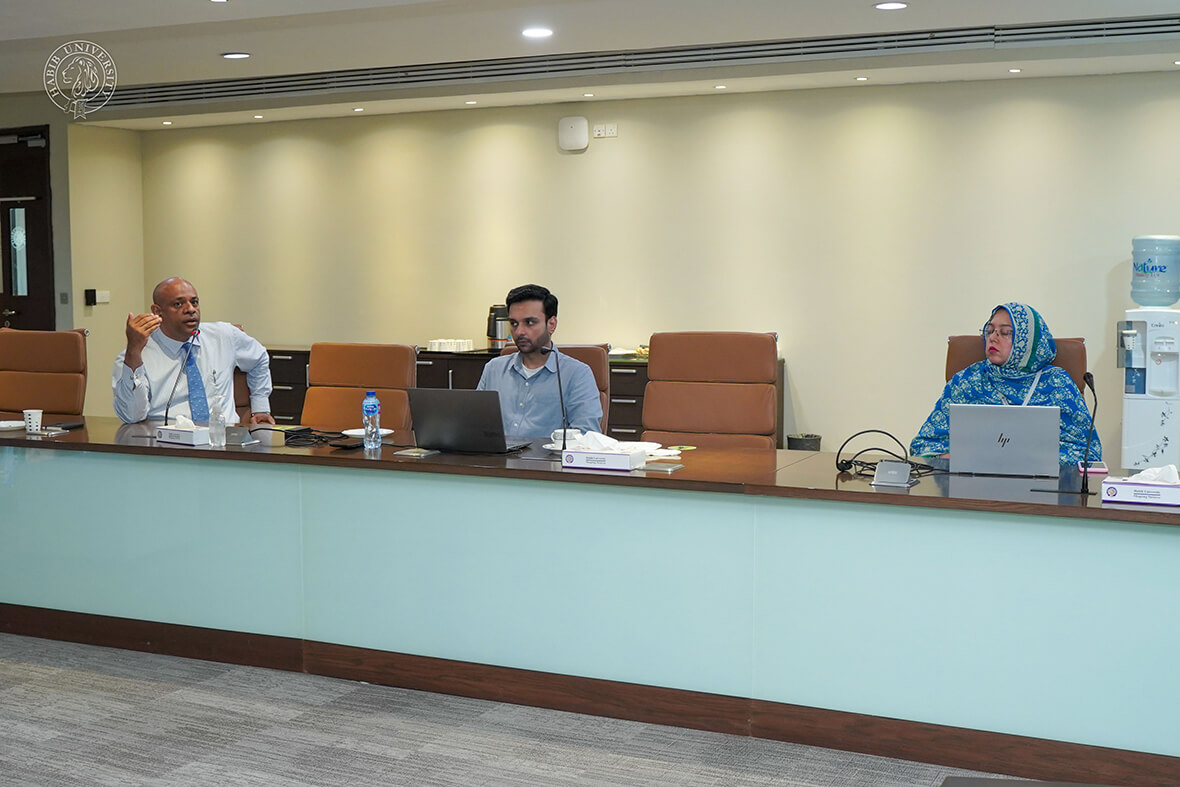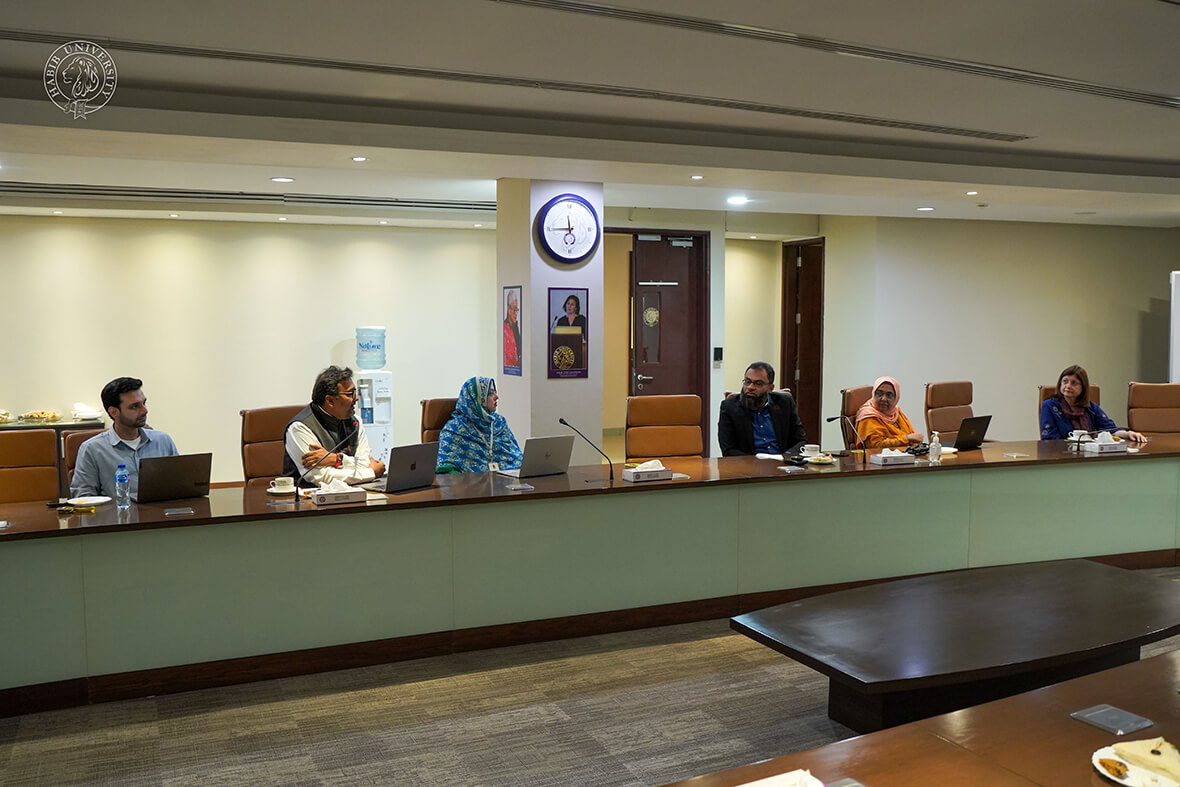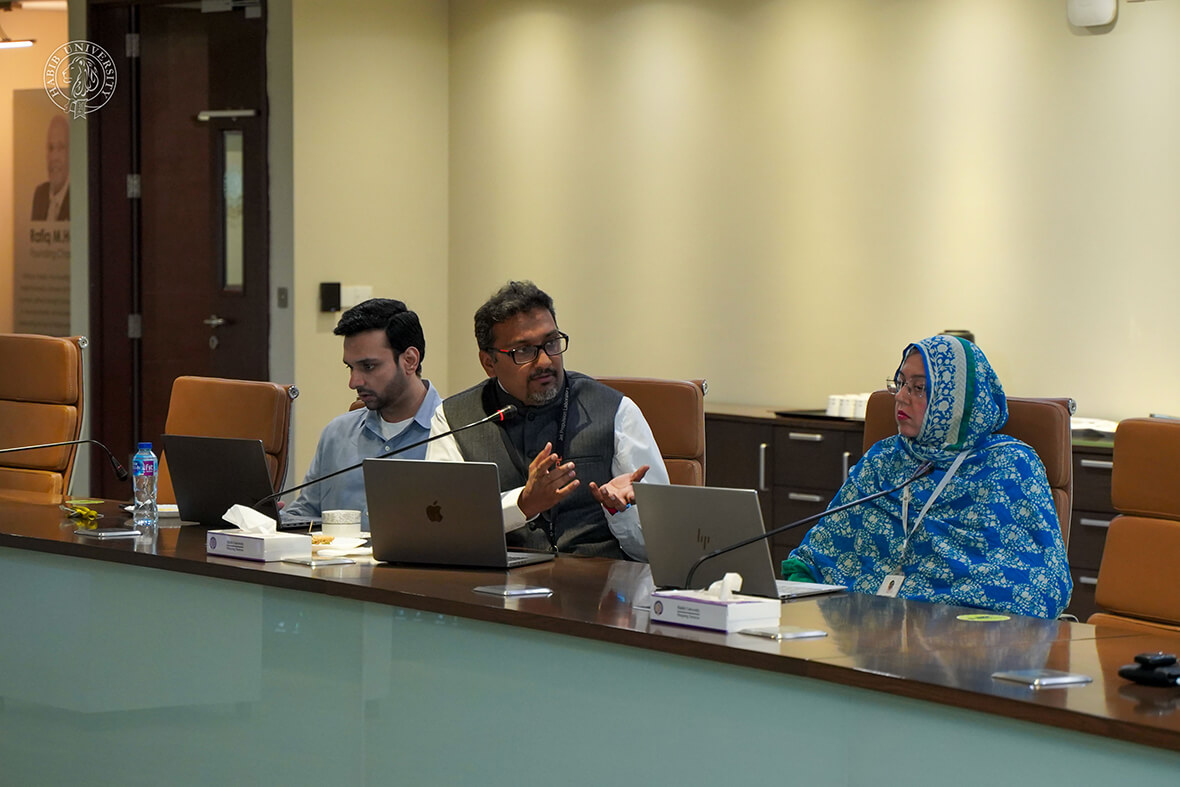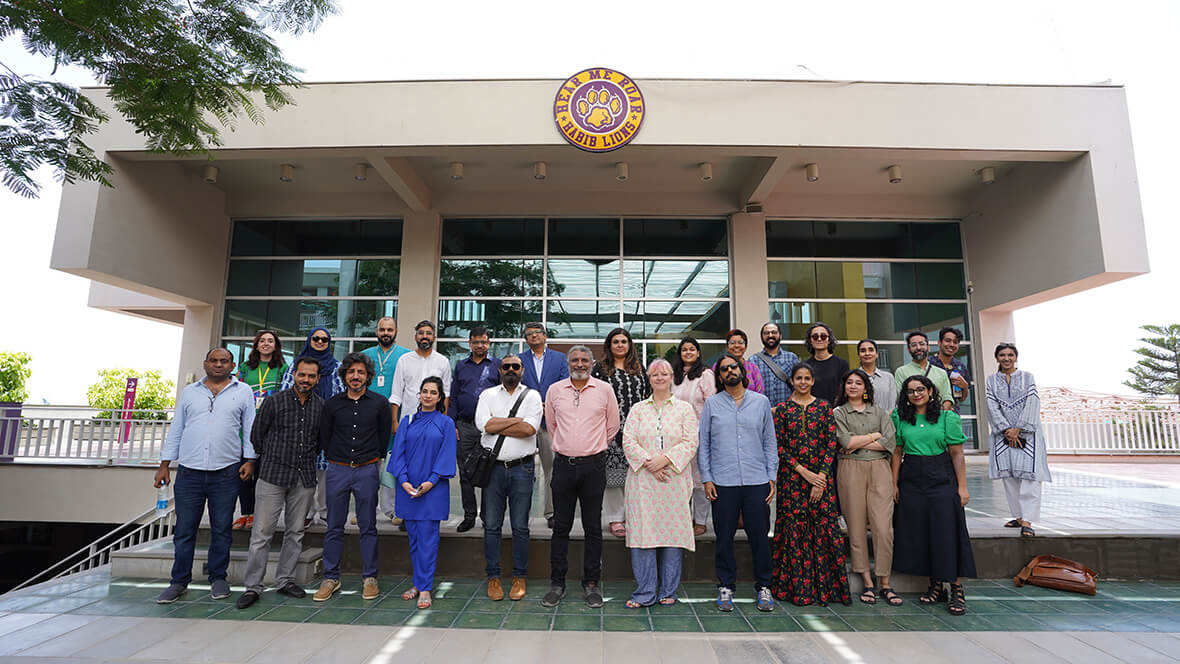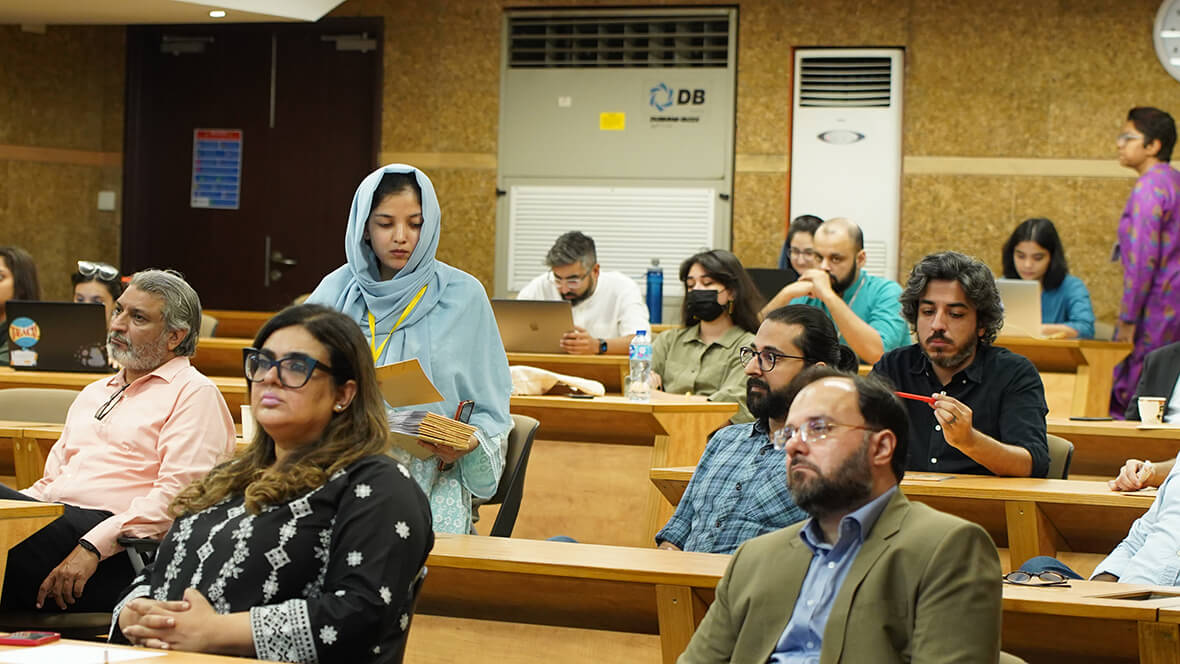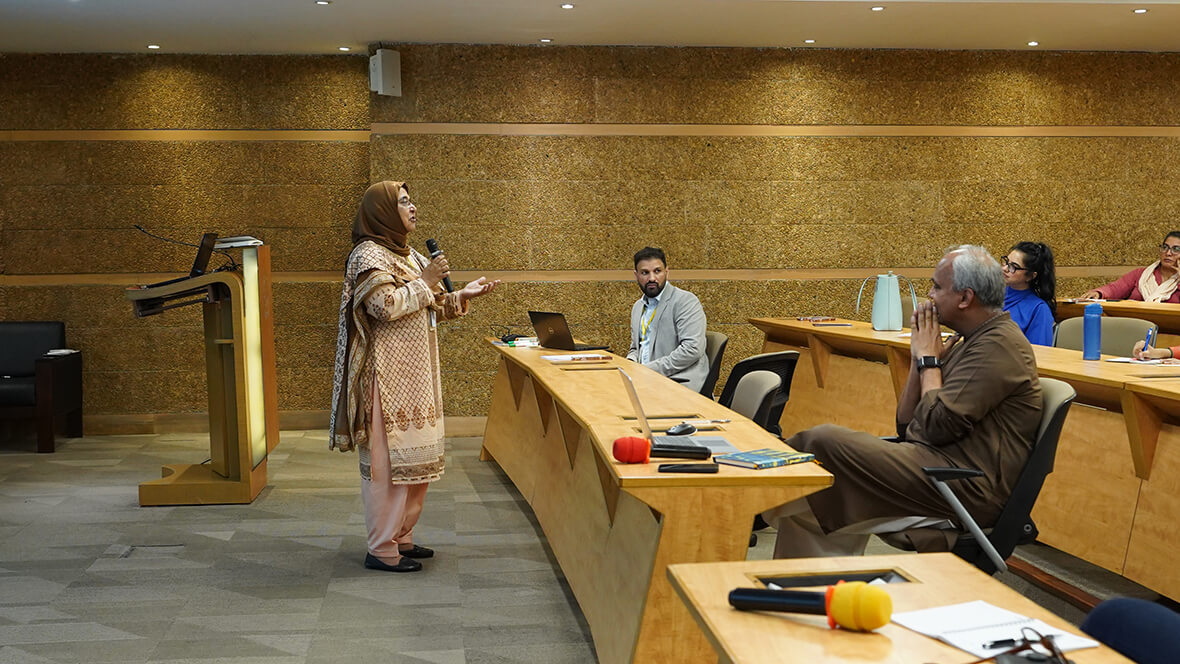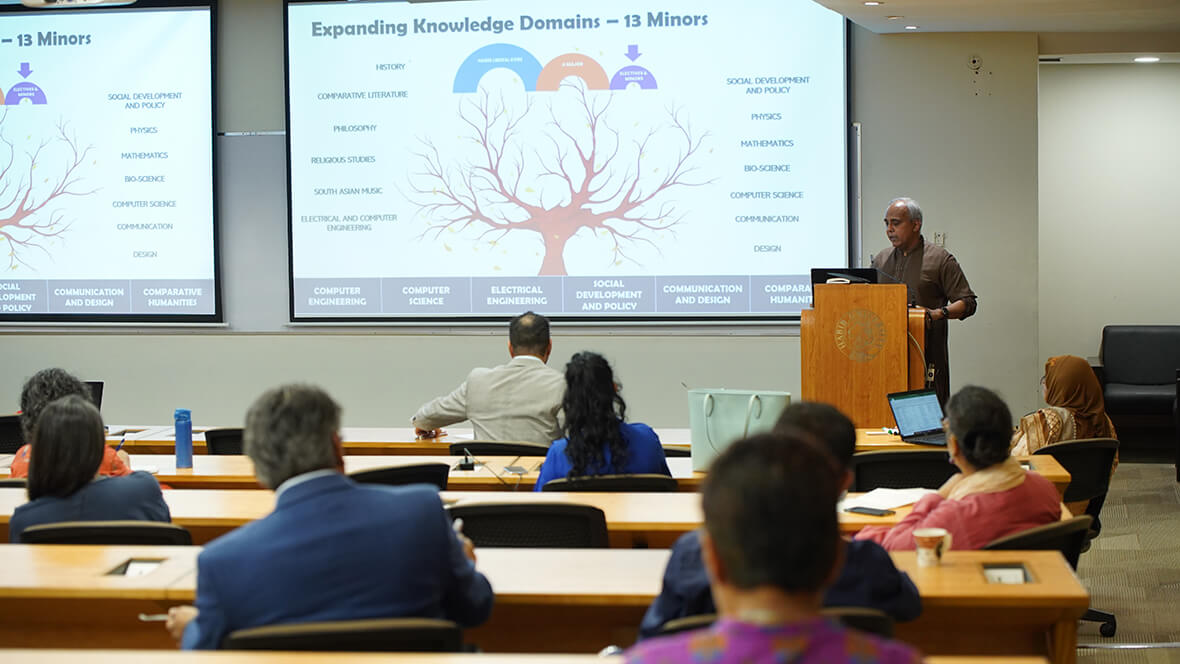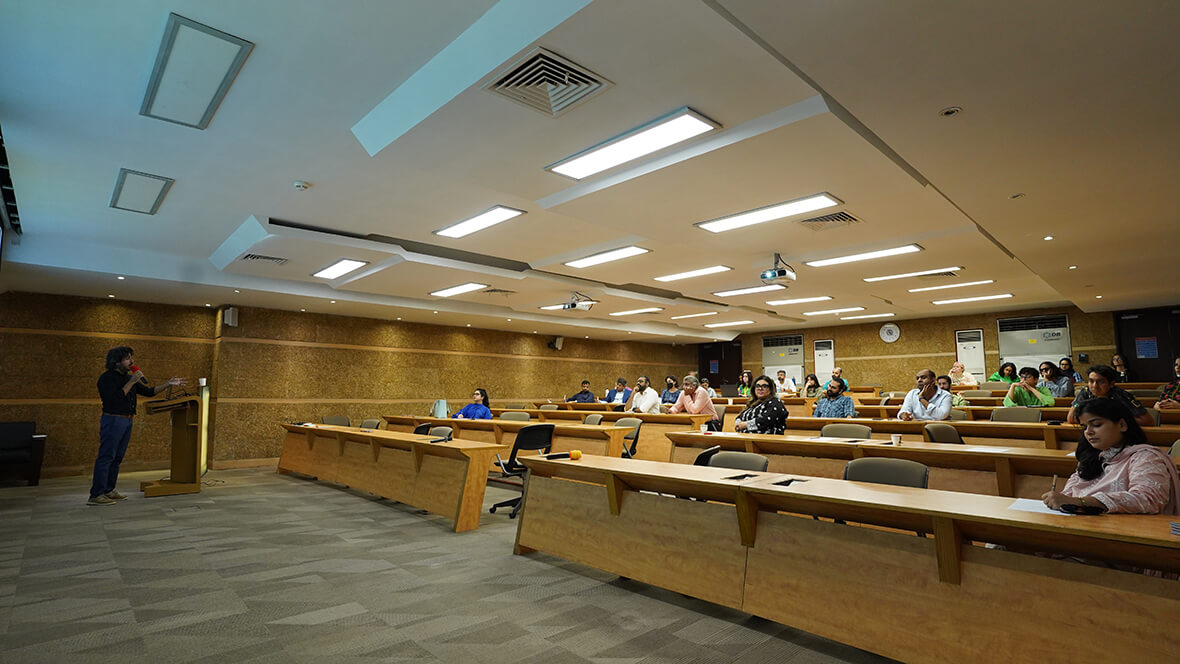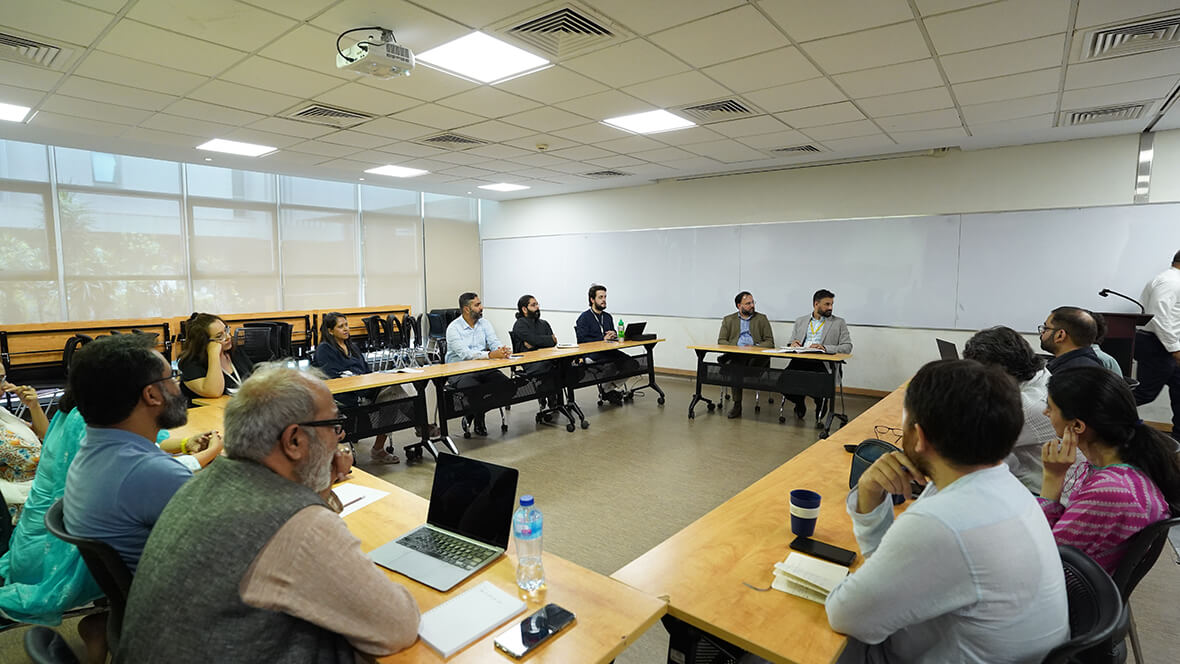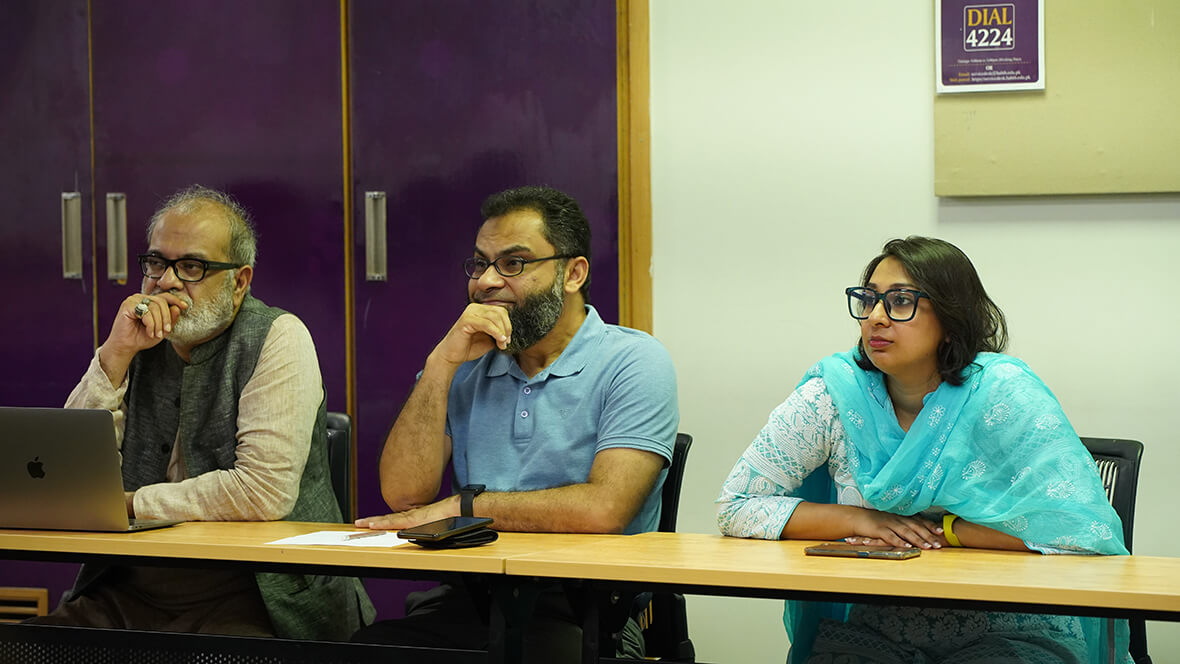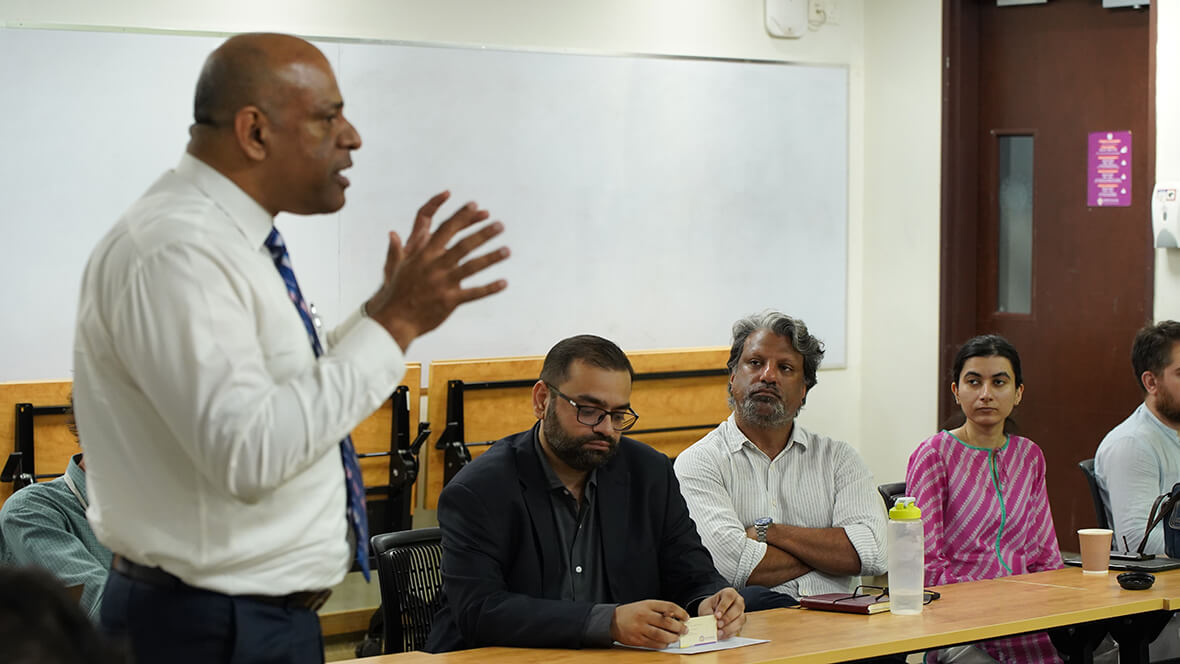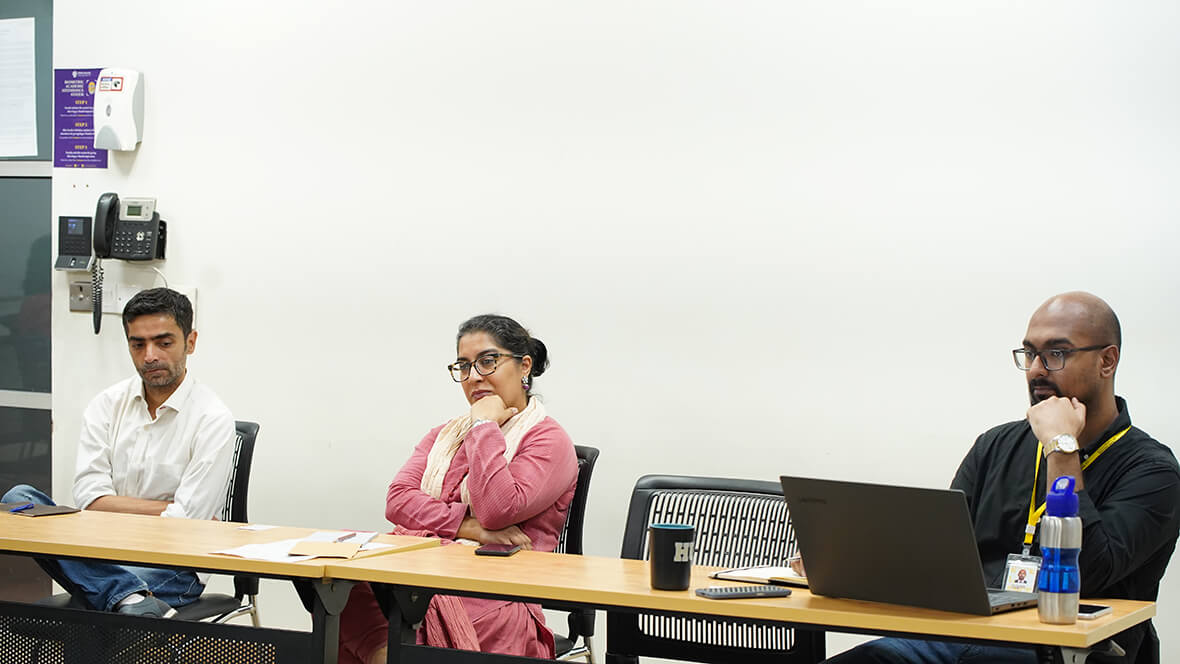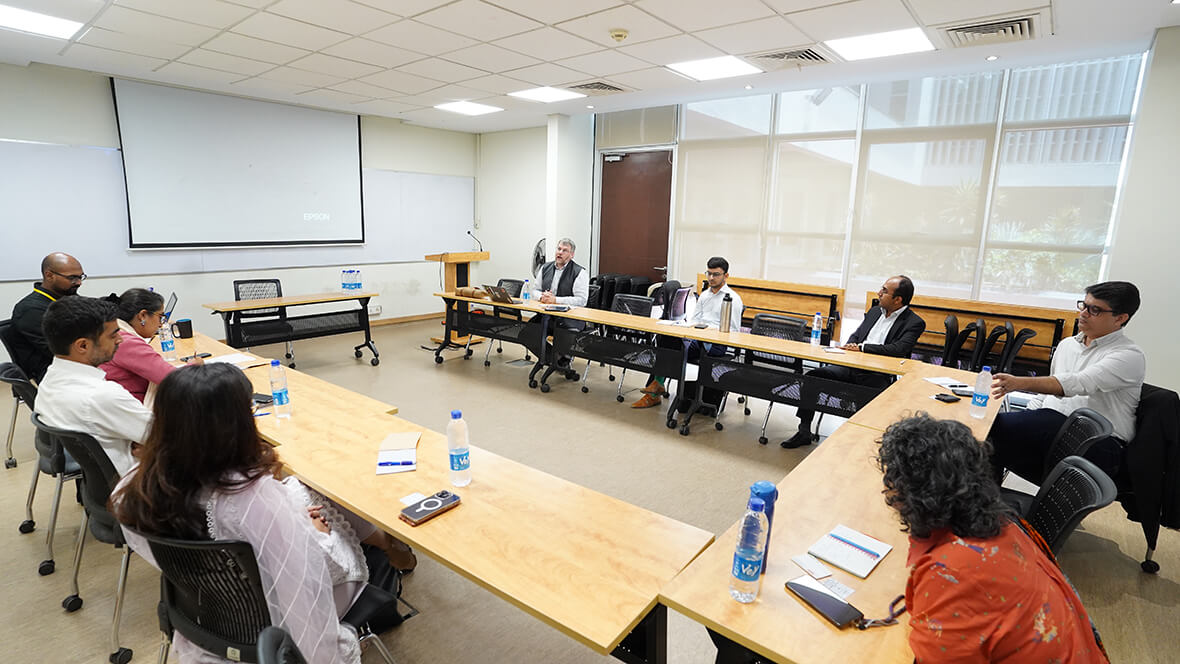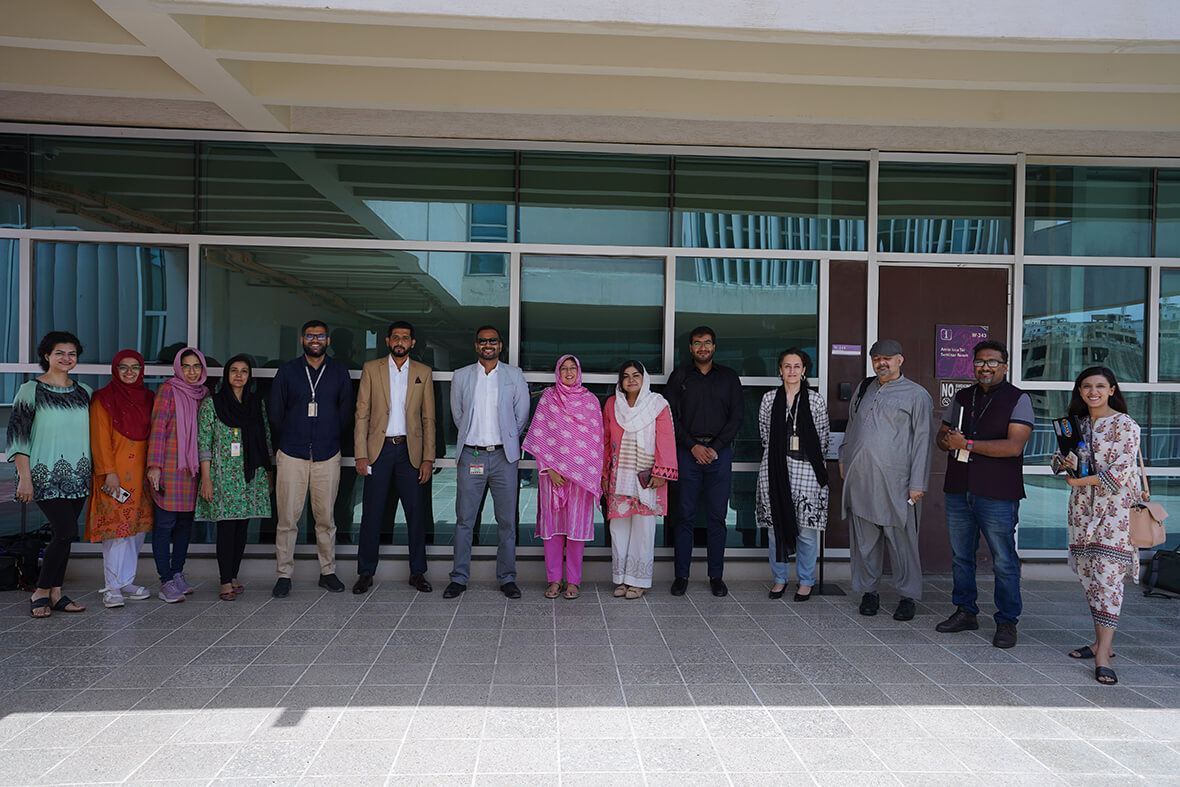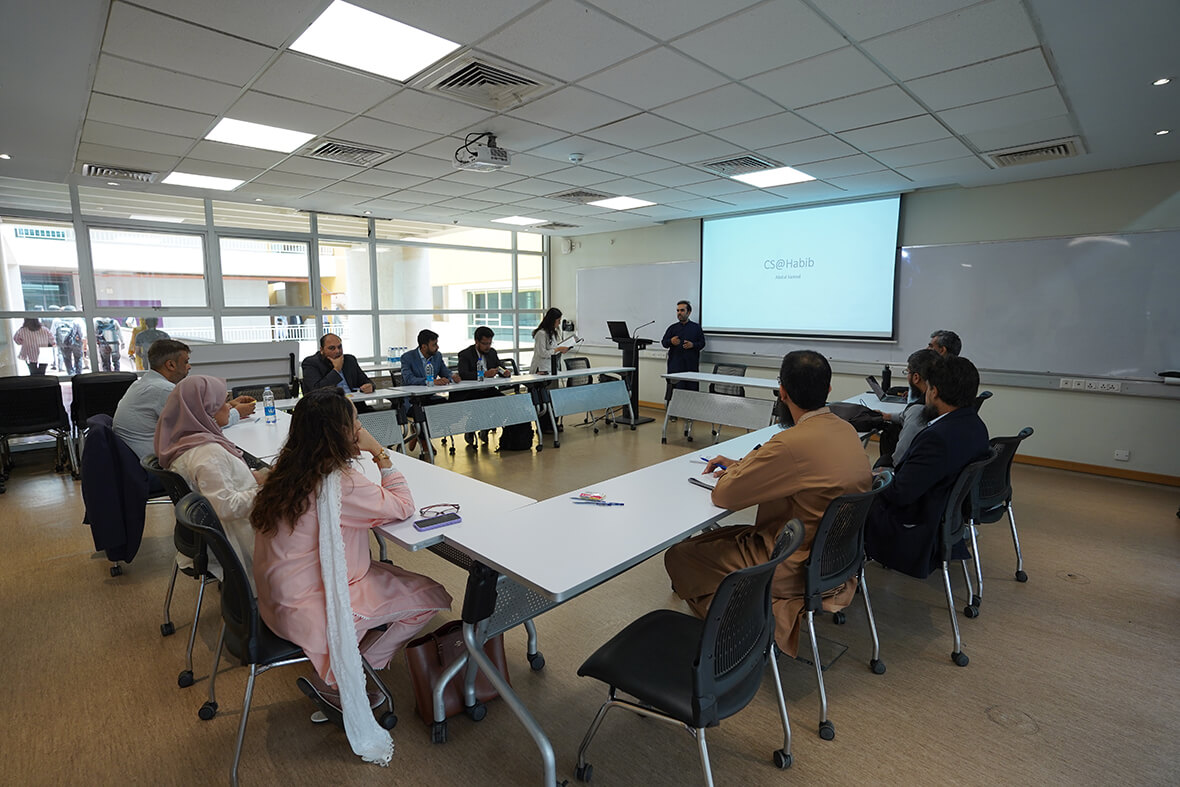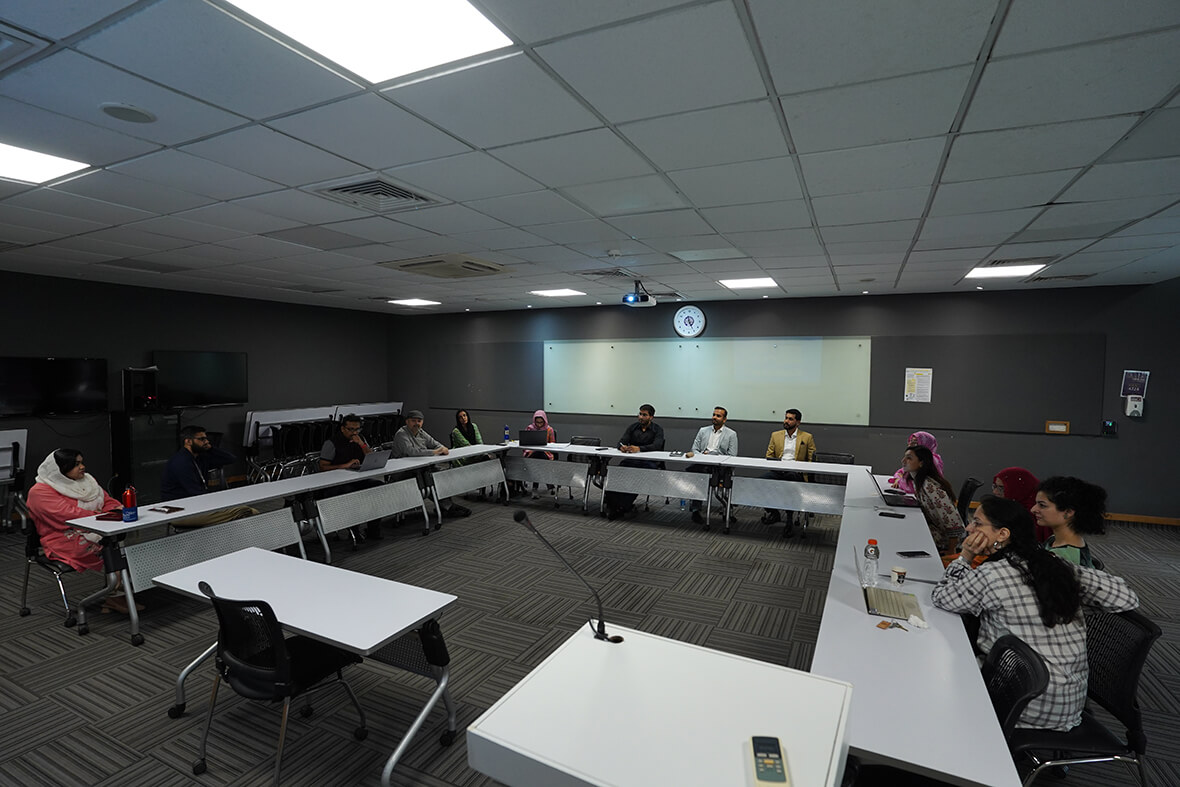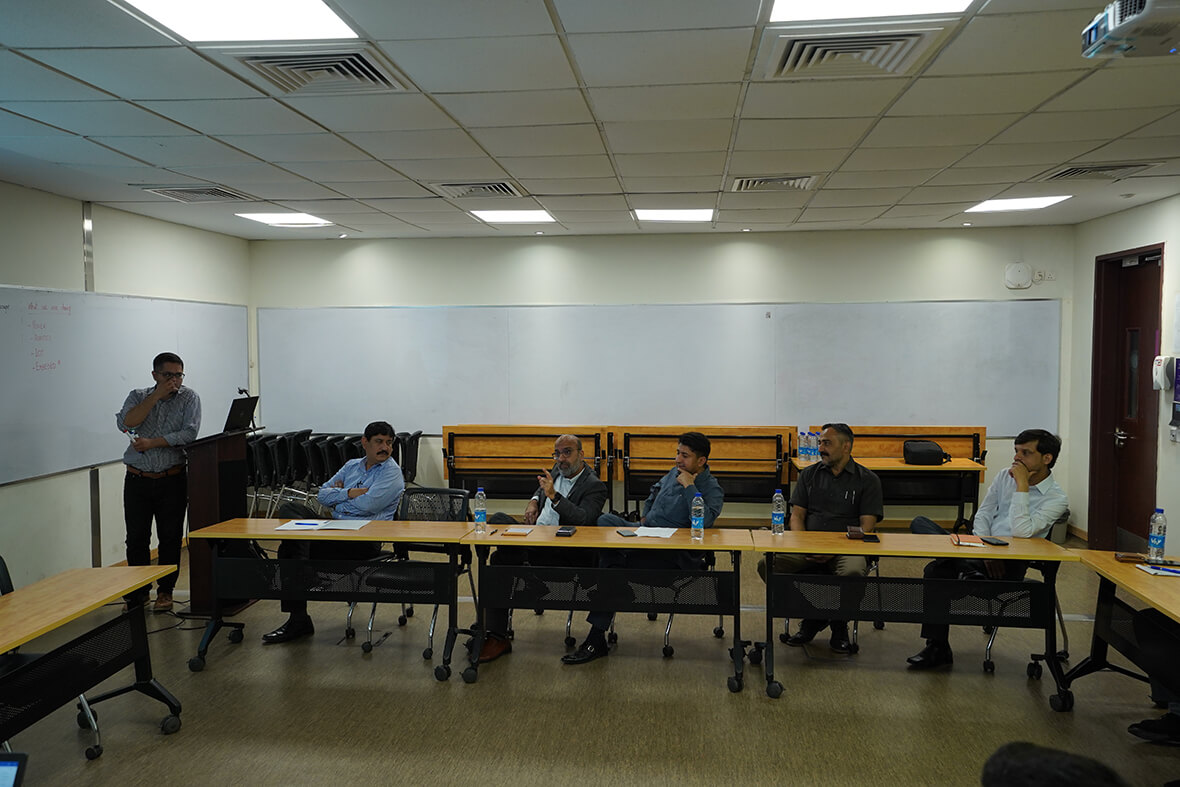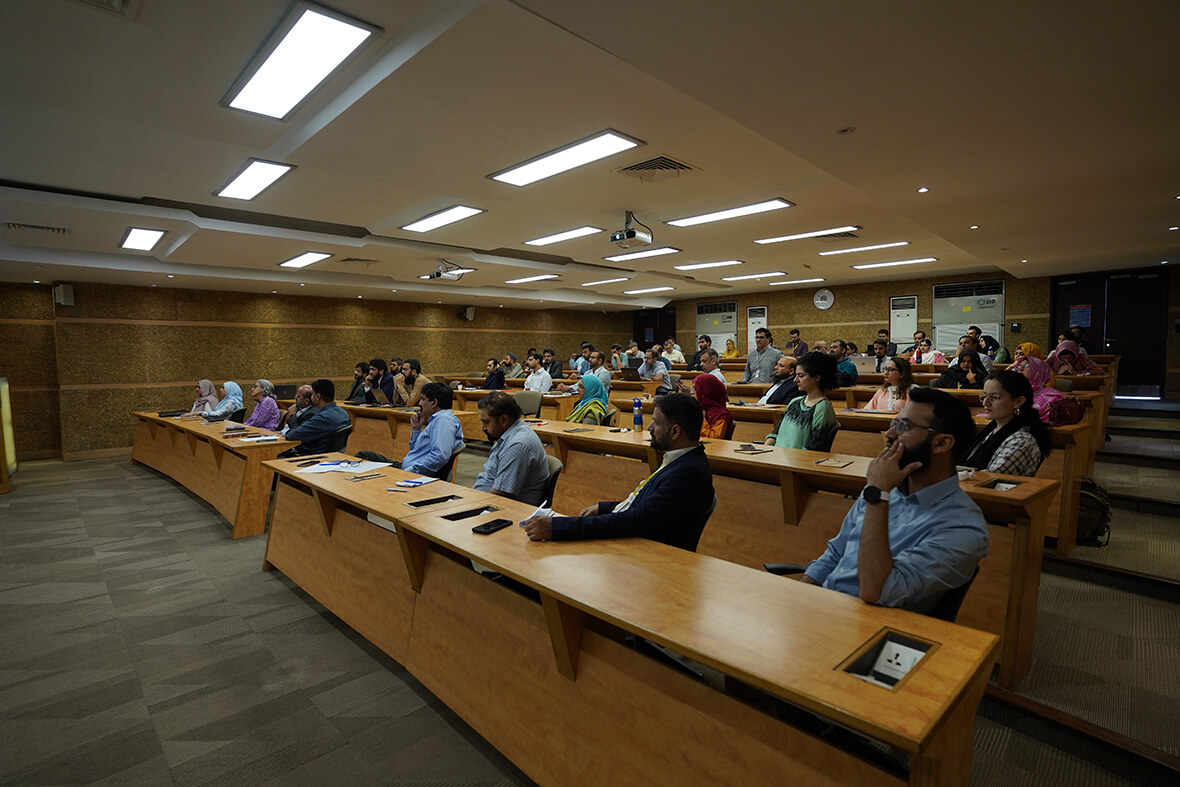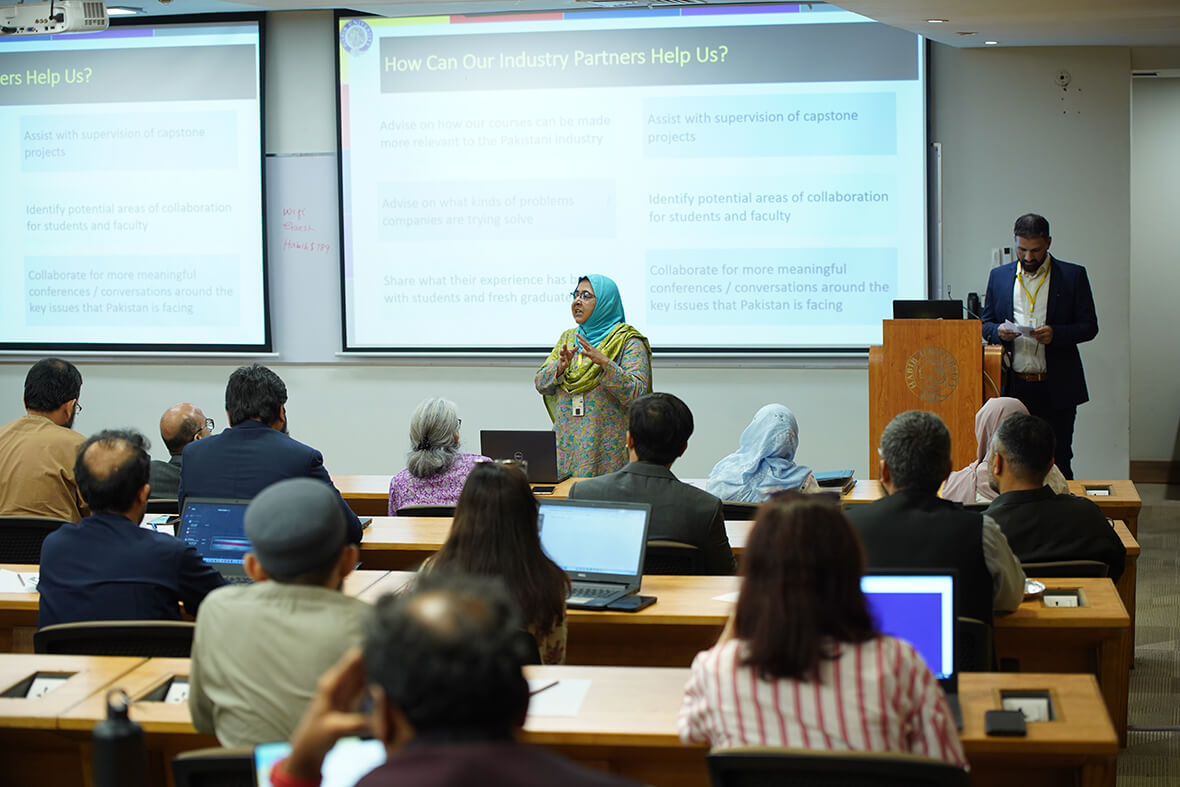UIAB Meetings
The University Industry Advisory Board (UIAB) at Habib University is an important platform for fostering collaboration between the university and industry partners. The role of UIAB has been expanded to include both the Dhanani School of Science and Engineering (DSSE) and the School of Arts, Humanities and Social Sciences (AHSS) from the 9th UIAB meeting to align the academic programs, pedagogy, and experiences with the needs of the industry. Prior to this meeting the UIAB was the Industrial Advisory Board (IAB) and focused on programs offered under the DSSE. The UIAB is composed of 15 members from the industries most relevant to DSSE and AHSS, and from industries which have multiple foci. The UIAB also includes senior academic leadership and leadership from the Student Success domain from Habib University.
Six Curriculum Review Committees are formed and each committee is led by an industry member. Committees meet once a year as per the identified schedule to review the curriculum, and UIAB meets at least three times a year to discuss issues of employment, industry expectations, and curriculum review. The goal of UIAB is to ensure that Habib University graduates are well-prepared to enter the workforce and make an impact in their respective industries. The key discussions of each meeting from the 9th UIAB onwards can be reviewed here.
Habib University conducted its annual curriculum review with Industry Professionals for the programs under DSSE for the academic year 2022-23 on May 31st, 2023, aimed to strengthen the university’s academic programs by incorporating industry insights and fostering collaboration between academia and the professional world. Attended by 26 industry professionals, this event showcased the university’s commitment to maintaining a relevant and dynamic curriculum. The programs of computer science, electrical and computer engineering and minors in Integrated Science and Mathematics were reviewed. The review commenced with a warm welcome from Dr. Aamir Hassan, the Vice President of Academic Affairs, who expressed gratitude to the guests for their participation and provided an overview of Habib University’s values, vision, mission, and strategic goals. Following the introductory session, the industry professionals were grouped according to their areas of specialization. Facilitated by program directors, the group discussions delved into multiple agendas and explored topics relevant to the industry. Program directors started their sessions by presenting their respective course grids and provided an overview of the four-year undergraduate journey then the group discussion sessions were conducted. This collaborative exchange allowed both faculty and industry professionals to share insights, perspectives, and ideas, ultimately enhancing the alignment between academic programs and industry expectations. The discussions on the second day revolved around industry-specific agendas, including the relevance of the course grid, potential additions to the curriculum, and industry expectations. Each program had its own unique agenda, such as exploring industry collaborations in cybersecurity, blockchain, and cloud computing for Computer Science. For engineering and technology, professionals from companies like K-Electric, Dawlance, Indus Motor Co., Systems, affinity, Gaditek, and many more actively engaged in the review process. The field of biosciences and mathematics saw representation from pharmaceutical companies such as Getz, Aga Khan Hospital, Indus Hospital, and Agri Auto Industry.
Habib University’s annual curriculum review with industry professionals for the programs under AHSS for the academic year 2022-23 was held on May 30th, 2023, aimed to strengthen the university’s academic programs by incorporating industry insights and fostering collaboration between academia and the professional world. Attended 28 industry professionals, this event showcased the university’s commitment to maintaining a relevant and dynamic curriculum. The session was for the programs of comparative humanities, social development and policy, and communication and design. The review commenced with a welcome session by Dr. Aamir Hassan, the Vice President of Academic Affairs, where he expressed gratitude to the guests for their participation and provided an overview of Habib University’s values, vision, mission, and strategic goals. Following the introductory session, the industry professionals were grouped according to their areas of specialization. Facilitated by program directors, the group discussions delved into multiple agendas and explored topics relevant to the industry. This collaborative exchange allowed both faculty and industry professionals to share insights, perspectives, and ideas, ultimately enhancing the alignment between academic programs and industry expectations. The discussions on the first day revolved around program-specific agendas, including the objectivity of maintain an education driven curriculum, potential additions to the curriculum, career opportunities for students and industry expectations. The curriculum reviews garnered participation from esteemed professionals across various industries. In the field of social sciences, representatives from NGOs such as UNICEF, IRD, TCF, and Transparency International were present. Prominent journalists from Tribune, Dawn, Hum Network, and GEO also participated. Design heads from Rayn and designist, as well as professionals from film-making, editing, animation, illustration, and publishing industries, including OUP, were in attendance.
The 12th meeting of the University Industry Advisory Board (UIAB), at Habib University Board Room was held in-person and online, to discuss AI, its role in education and industry and other agenda items. Dr. Aamir Hasan, the Vice President and Dean of Faculty at Habib University, welcomed the discussed the university’s strategic goals, including diverse student community, high-quality learning and living experience, and pedagogical excellence. He also highlighted the university’s focus on curriculum review, faculty development, academic governance, and international accreditation. Dr. Anzar presented the latest developments in AI, its rapid growth, uses, impact on education and industry, future of students and the board discussed the future of the industry and adapting to the latest AI tools. Ms. Yasmeen Bano presented the curriculum review and enrichment designing and the annual industry conference. The board was also introduced to the new board member, Mr. Rizwan Dalia, Chief People Officer from K.E.
The 11th meeting of the University Industry Advisory Board (UIAB) was held to discuss several topics related to Habib University. The introduction session by Dr. Amir Hasan discussed the admission of the class of 2023, introduced new academic minors, the Career Curation Program, infrastructure expansion, the initiation of thinking process for the land in Education City and infrastructure expansion plans. The highlights of the HU Alumni success were presented, including the class of 2022. The Board suggested enhancing the participation of faculty in industry events to better bridge the gap between industry and academia. The members showed interest in the stories of entrepreneurs; there was discussion on marketing HU stories. The Board members suggested that Habib University can launch interesting programs for executive education through the platform of Playground, and Humanities courses through the liberal arts and sciences curriculum. The Board also discussed the employer survey and the need to conduct surveys based on graduates’ feedback.
The 10th UIAB meeting at Habib University was recently held to review the University’s degree programs. The meeting began with introductions and approval of minutes from the previous meeting. The current practice of curriculum review, which includes an annual curriculum review process and a three-year major program review process, was presented to the board. Discussions included students’ feedback, the process of major program review, and short presentations on degree programs followed by Q&A sessions. Curriculum review meetings for all programs were held, with industry professionals and faculty members in attendance. The discussions centered around integrating learning with the core values of Habib University, preparing students for the industry by equipping them with problem-solving and design thinking skills, and creating awareness of Habib’s programs in the industry through workshops and seminars for industry professionals. The Board discussed the need to engage more industry professionals in teaching various courses, facilitating students’ ability to work with low-tech equipment and tools, and placement of graduates. The meetings concluded with suggestions for incorporating practical aspects and enhancing industry exposure tours in the curriculum.
The 9th meeting of the University Industrial Advisory Board (UIAB) focused on revamping the Board, with President Wasif Rizvi of Habib University presenting the proposed structure and terms of reference. The meeting discussed challenges in higher education in Pakistan, and Habib University’s initiatives to create a high-quality intellectual experience and enhance university-industry collaboration. The proposed structure of the UIAB included expanding its role to both schools of Habib University, forming six curriculum review committees and two graduate placement committees. The meeting also discussed the importance of industry input in curriculum review, and developing students’ work ethics, professionalism, attitude, and ability to work in teams. The Habib University Alumni Update from 2018 to 2021 provided insight into the university’s strategic goals. There were discussions about enhancing alumni engagement in the market and collecting data on alumni’s impact on their workplaces. The update also discussed the reasons for a large number of females joining Habib and the gender division of students within each major.


















